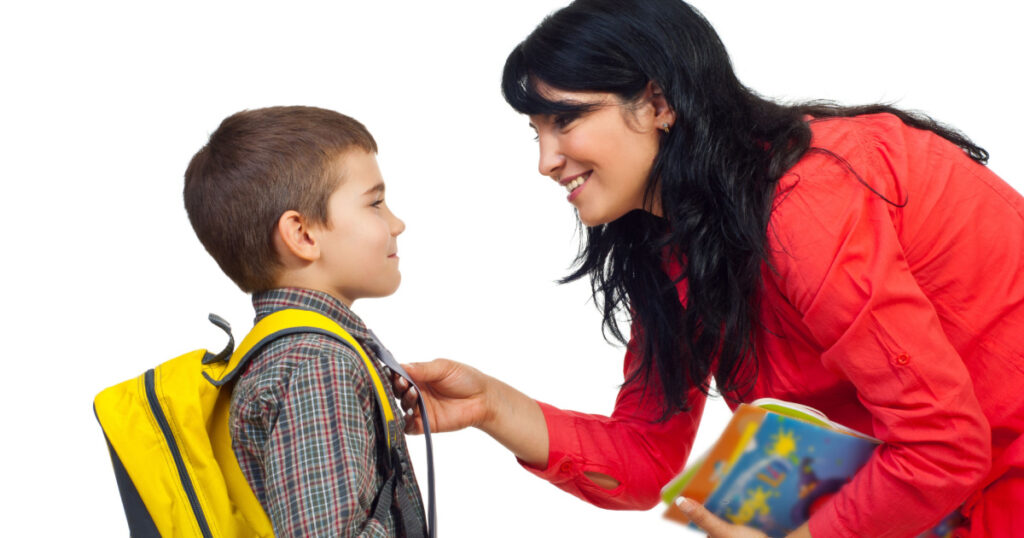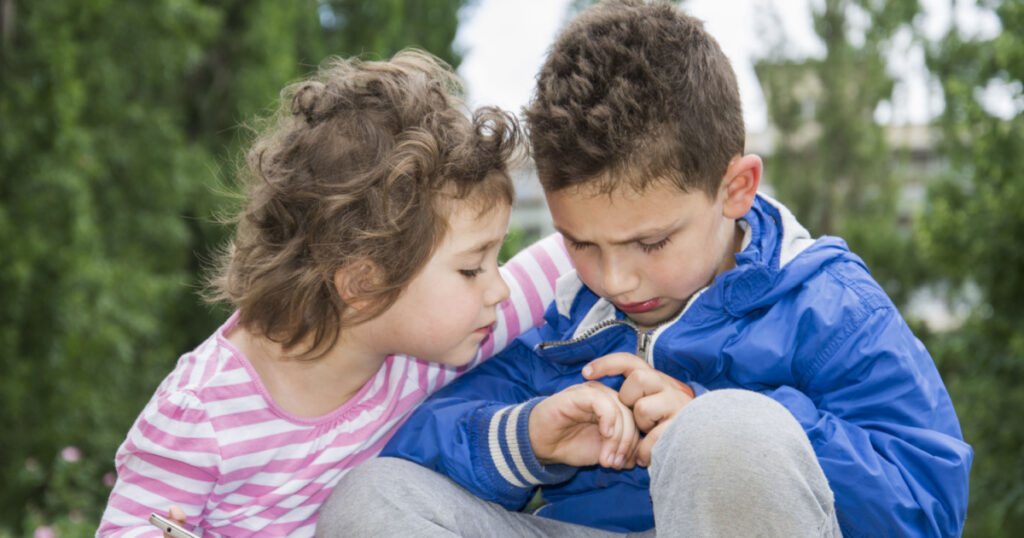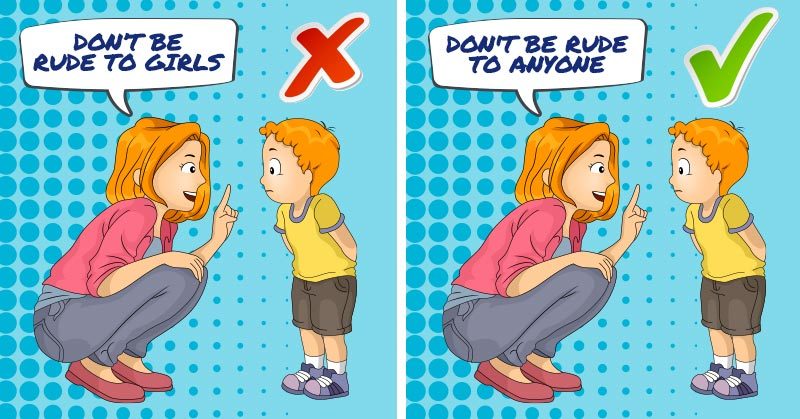Over the course of their lives, children have many different teachers. The first of these, however, and arguably the most formative, are their parents. Children learn social behaviors, right and wrong, and basic life skills from their parents. These are 11 things I’m teaching my kids before the age of 10 to help them be more happy and successful later in life.
11 Things I’m Teaching My Kids Before Age 10

There are so many things we need to teach our kids: How to behave, how to treat people, how to do various household chores, basic hygiene, and more. While there are plenty more things they must learn than what is on this list, these are the things that I’m teaching my kids before age 10 no matter what.
Read More: 10 Truths That Every “Mom of Boys Only” Needs to Know
1. Laundry

When I first got to university, I was shocked at the number of students who didn’t know how to do their laundry. Some students would even go so far as to go home and visit their parents just so that they would do their laundry for them. The thing is, laundry is not that hard. It is not out of the realm of possibility to teach a kindergartener how to wash, fold and put away their laundry. As they get older you can teach them more of the intricacies of color separation, how to remove stains, etc.
2. Budgeting

The value of money is another topic that many children reach adulthood without really understanding. Though children don’t have an income, they typically will receive money on their birthday, as gifts on holidays, from the tooth fairy, and maybe even a monthly allowance. You can easily teach them the importance of saving some money for future needs as well as how to have some “fun money”. Try having two piggy banks or jars, one for spending and the other for saving. They will be able to watch their “save” money grow, and it will also make them think about whether or not something is worth spending on.
3. Basic First-Aid

There are a few first-aid things that kids can start learning at a very young age: What number to call in case of emergencies (9-1-1 in North America). How to properly clean, sanitize, and bandage small wounds These are simple lessons that will empower them to take care of themselves more, and they will know what to do if a friend, stranger, or they themselves are in need.
Read More: Benefits of Aunts: Why Aunts May Be Just as Important as Moms
4. Digital Safety and Etiquette

We are living in a digital age and the internet is a part of our children’s lives in one way or another from a very early age. It is never too early to start talking to your kids about the dangers of spending too much time on technology as well as online bullying. The dangers of online predators. Talk about texting, website safety, privacy settings, scammers, and finally, online vs. Real life Having open discussions with your children about these things will help protect their mental health, keep them safe, and also prevent them from becoming internet bullies themselves.
5. Ownership and Consequences

The best way to teach your children how to take ownership of their mistakes and accept the consequences of their actions is to display that yourself. Hold them accountable and hold yourself accountable as well. Reward honesty and admission. Talk to them about times that you made a mistake and the consequences that you had to accept. Most importantly, if you are ever in the wrong when it comes to your spouse, your kids, or strangers out in public, apologize. Apologizing to your kids or having them watch you do so to someone else teaches this lesson better than just talking about it ever will.
6. How to be a Gracious Winner or Loser

Gloating or rubbing your win in the face of others is not a good look. Neither is whining, complaining, and blaming other factors when you lose. Teach them by discussion and also examples of how to celebrate a win without putting others down in the process. Also teach them how to be a gracious loser: Congratulating the winner, and taking the loss as a learning opportunity to get better next time.
7. Peer Pressure

Child or adult, everyone just wants to feel accepted by their peers. Unfortunately, peer pressure to do something that makes them uncomfortable or that they know is bad happens on the school playground almost daily. Teach your children to be confident in themselves and that it is okay to say no. If those kids don’t want to be friends with them because they won’t do something they know is wrong, then they are not friends worth having. Instead, teach your children to only maintain friendships with kids who respect them and don’t push them when they say no.
Read More: Our Daughter’s Nightly Struggle
8. Respect and the Value of Diversity

The world is full of unique people with different life experiences, ideas, opinions, and values than us. It is important to teach our children the power of diversity – to celebrate it, not fear it. We can learn much more from those who are different from those who are the same. Most importantly, teach your children to be respectful no matter what: In-person, online, when in a disagreement with someone – all of it. On that same note, teach your children to respect themselves and not to put up with disrespect from others. Just as much as other people deserve their respect, they also deserve it from others.
9. How to Show Empathy

As your children get older, their friends and family are going to start experiencing hard times. From the time they are born, teach them about compassion and understanding. Read stories to them with those themes, have regular discussions about the topic, and above all, show empathy yourself. Your children will mimic what you do, so be the kind of person you want your children to be.
10. Speak Up For Themselves

This goes along with respect: Teach your children to have the confidence to speak up and get what they want. This will be harder for some children than others but will have a lifetime of positives. It will be helpful when negotiating a salary or benefits and saying no to unwanted physical contact or advances from others. Standing up to bullies as well as communicating their needs in a group situation (when they feel uncomfortable when they are hungry when there is an activity they want to do or not do) The situations they will apply this skill in are endless.
Read More: Grieving Mom Warns of Bottle Propping
11. Appreciate Nature

Will live in a fast-paced world that makes it easy to forget to slow down and appreciate the beauty around us. Get outside with your kids and teach them to value nature and the great outdoors. Not only will this help their minds and bodies be healthier, but it will also give them an appreciation for our planet that will propel them toward being more environmentally conscious adults.
There are so many things I could teach my kids.

I could write a list of over 100 things to teach my kids and I still wouldn’t be finished. These are just a few of the things I know for sure I want them to know by the age of 10. What lessons would you like to teach your kids?

